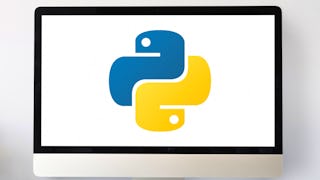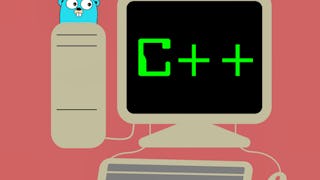![[Featured Image] A business intelligence developer sits in a conference room with a laptop and discusses data with a colleague.](https://images.ctfassets.net/wp1lcwdav1p1/70uxmrFBsX2LEm9JFPpEO1/b9a27720b5fbe158bc6fdef9806c7654/GettyImages-1729368394.jpg?w=330&h=216&q=60&fit=fill&f=faces&fm=jpg&fl=progressive)
What Is a Business Intelligence Developer? And How to Become One
Understand the role of a business intelligence developer and how you can get into this line of work.
March 20, 2024
Article
Approximately 377,500 jobs will be created in computer and information technology annually from 2022-2032*. Whether you want to increase your salary or pursue a specialization, discover the resources you need to advance your back-end development career.

Build advanced development skills and earn credentials from industry leaders

Skills you'll gain: Kotlin, Android Development, Android Studio, Unit Testing, Object Oriented Programming (OOP), Mobile Development, Test Driven Development (TDD), Software Testing, Application Development, Functional Design
Intermediate · Course · 1 - 4 Weeks

Skills you'll gain: Jupyter, Automation, Web Scraping, Python Programming, Data Manipulation, Data Import/Export, Scripting, Data Structures, Data Processing, Data Collection, Application Programming Interface (API), Pandas (Python Package), Programming Principles, NumPy, Object Oriented Programming (OOP), Computer Programming
Beginner · Course · 1 - 3 Months

University of California, Santa Cruz
Skills you'll gain: C++ (Programming Language), Go (Programming Language), Data Structures, Object Oriented Programming (OOP), Software Design Patterns, Debugging, Unit Testing, Algorithms, C (Programming Language), Program Development, Programming Principles, Computer Programming, Graph Theory, Software Testing, File Systems, Artificial Intelligence, Integration Testing, System Programming, Simulations
Intermediate · Specialization · 3 - 6 Months
Ready to take the next step in your back-end development career? Roles in computer and information technology earn more than twice the average salary for all occupations, so you have plenty of high-paying career paths to choose from*. As a mid-level or advanced back-end developer, you may begin to apply for leadership positions such as a lead software engineer, director of engineering, or senior product manager. You could also focus on an industry niche such as blockchain development or obtain the front-end development skill set to become a well-rounded full-stack developer. Learn more about how to prepare for more advanced development roles and how Coursera can help:
There are several job opportunities that can be pursued with server-side skills. Eight common job roles include:
Some of the skills and experience you may need to have to learn full-stack web development include a general understanding of the front-end development and back-end development that goes into building a website. Important skills include coding and Linux. It will also be helpful if you have some prior working knowledge of technologies such as HTML, CSS, and the scripting language of JavaScript, as well as frameworks like Angular, React, and Node.js.
Whether you're just starting in software development or looking to advance within the field, you'll find plenty of resources to fuel your learning. Here are seven ways to build your software development skills:
Read more: 7 Tips for Sharpening Software Developer Skills
*US Bureau of Labor Statistics. “Occupational Outlook Handbook: Computer and Information Technology Occupations, https://www.bls.gov/ooh/computer-and-information-technology/home.htm.” Accessed February 6, 2024.